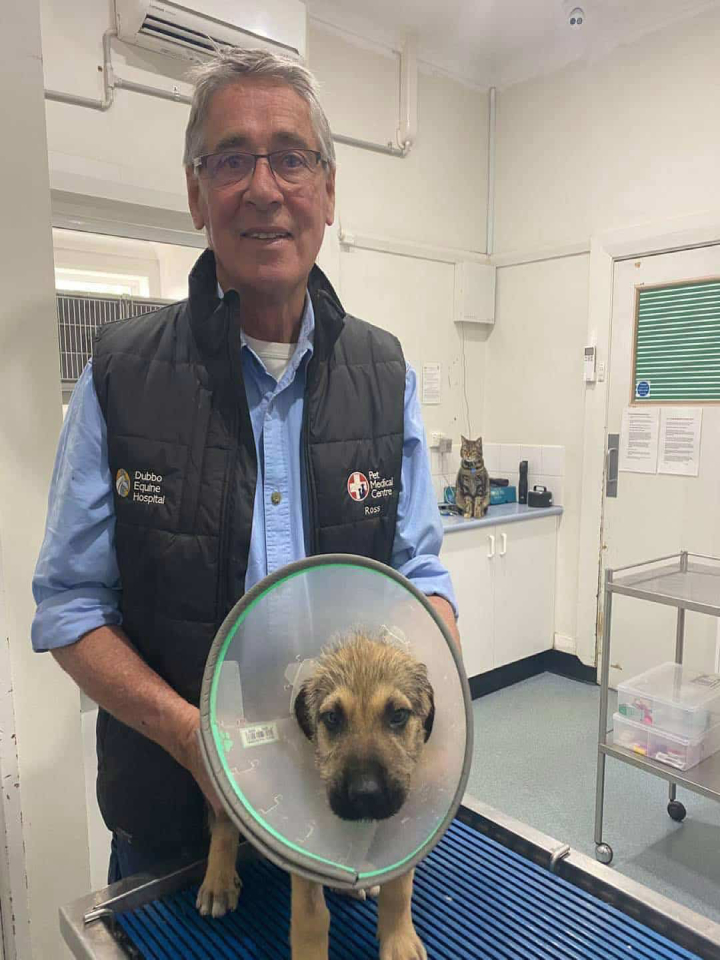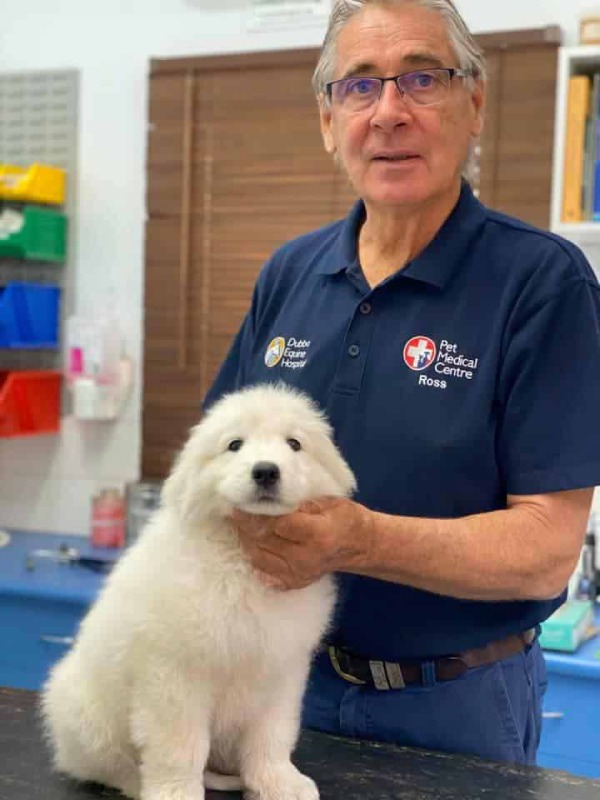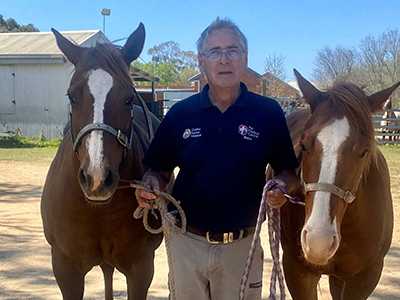Ross Pedrana’s a country vet through and through. Born in Dubbo, schooled in Dubbo, running his own practice in Dubbo since 1991. He made it to Sydney for his veterinary degree, but for Ross, the city’s a place to visit rather than to live in.
Time to learn a bit more about Ross and his Dubbo practice the Pet Medical Centre.
How Did You Become A Vet?
It was a natural transition from the rural situation I grew up in. I spent time with horses, cattle and sheep, and that’s what I wanted to do.
I studied at Sydney University and completed my veterinary degree in 1973. I then took a position in Mudgee where I was exposed to a whole variety of equine cases thanks to the number of horse studs in the area. I was also mentored by experienced veterinarians who visited the studs. This massive equine experience helped me see my long-term future more clearly.
I moved to Dubbo, then to Narromine, where I established my own practice in 1976 catering for equine, livestock and companion animals across a wide regional and rural area. The practice grew to have four partners and a large and influential artificial breeding centre for sheep and cattle.
In 1991 I purchased a practice in Dubbo and ran that alongside the Narromine practice for many years. The Dubbo practice was closer to my rural property and my children’s schooling, and in 2002 I severed my business interest in the Narromine practice. I’ve been working in Dubbo ever since.
Tell Us About Your Practice
We actually run the practice in two parts.
The Pet Medical Centre has existed since 1970 and is in Dubbo itself. It’s the practice I bought into in 1991, and it handles the usual array of small animal medical and surgical cases, including many orthopaedic challenges which are common in a rural area.


I also run the Dubbo Equine Hospital out of the farm where I live. We deal with all kinds of issues, from investigating lameness to surgery to breeding and more. We do a lot of trackwork, looking after around 250 horses.
More than half of the total vet business is equine-related and another third is small animals. The amount of livestock business we get varies with the prevailing weather conditions and the rural economy. With low livestock price and drought conditions, farmers are reluctant to incur veterinary expenses.
I can’t run the practice on my own. I have another vet assisting with the small animals, and we employ locums, generally for 3 days a week. I’d love to get two graduate vets to join me in the practice with a view to longer term transition of ownership.
I’ve been a vet for so long and the practice is varied. I’ve drained 38 litres of fluid from a horse suffering from pleurisy. I’ve treated a dog with a 70cm stick stuck in its chest. Today I have my hands full with 7 lame horses and some breeding work. Nothing much surprises me any more.
What Do You Do Outside Work?
With the Dubbo Equine Hospital at our home, plus a farm, there isn’t always a clear work / life divide. We have sheep, cattle and horses of our own. My wife Gillian’s an artist, so I care for them and she paints them.
I met Gillian in the UK when I was President of Equine Veterinarians Australia and represented the organisation at a BEVA (British Equine Veterinary Association) conference, and persuaded her to come out here to join me. Our daughter, Lydia, is a journalist and our son, Andrew, is a local plumber. We visit Sydney quite frequently – either driving or flying. It gives us a break and keeps us connected.
How Long Have You Known The Radincon Team?
I can’t remember when I first met Jon – I’ve known him as long as I can remember and I’ve bought all my X-ray equipment (three systems) from him. He’s the kind of professional you can trust, call a friend, and invite to sit at your kitchen table. He’s sat at ours on many occasions.
What About The Future?
I’m not ready to stop yet – I love the Dubbo regional community and the opportunities it has given me over many years. But I am keen to find some like-minded veterinarians who share my vision for this community, so I can transition the practice and my clients to them.
Finally, Do You Have Any Advice For Young Vets Entering The Profession?
Apart from coming to Dubbo and seeing whether you’d like to join the practice?
My biggest piece of advice would be to build professional connections. Find yourself a mentor – or mentors – and build a network of professionals (not necessarily veterinarians) willing to share valuable advice.
Get involved. Join associations. Reach out.
Don’t let distance stop you. I was never in the city, but I took my own advice. I was part of the AVA and the EVA. I supported the CVE at Sydney University as Secretary for almost 18 years. It helped me massively in my practice. I was able to tap into so much expert knowledge.
It’s really true that with the right attitude, you can develop aptitude and skills.
One final reminder: Look after the clients and the patients, then the money will come.

